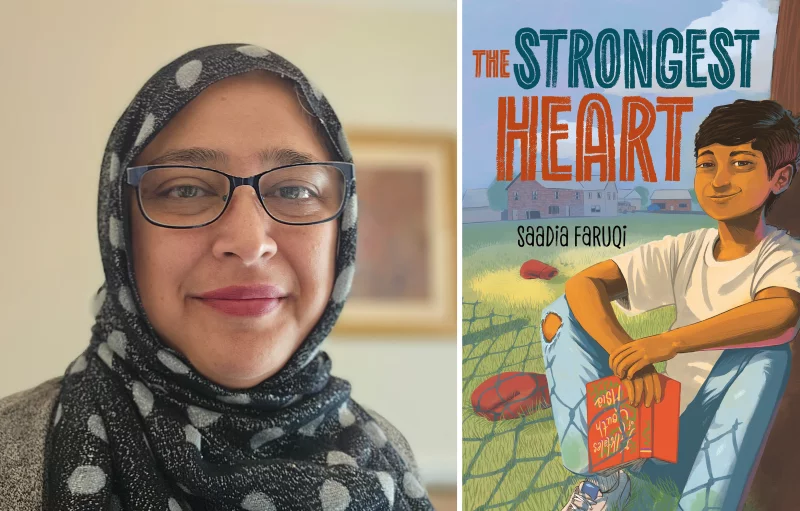by MALAKA GHARIB

After writing 50 books, Pakistani American kids’ book author Saadia Faruqi is covering an issue she’s never explored before in her newest title, The Strongest Heart.
“This is the first time I’ve written a book that completely revolves around mental illness and the repercussions it has on family life, especially on kids,” says Faruqi. “It’s a topic that’s very close to my heart and the theme is personal to me.”
Published in March, The Strongest Heart follows Mo, a Pakistani American eighth grader, as he struggles to understand his Abbu — “father” in Urdu — who has schizophrenia. The book is based on Faruqi’s own rocky relationship with her father, whom she believes also had this condition.
Growing up in Karachi, Pakistan, Faruqi says she was afraid of her father’s episodes and often felt confused. The adults never “sat me down and explained anything. Nobody said, ‘Hey, don’t be scared.’ ” She hopes The Strongest Heart, geared toward middle schoolers, can offer comfort and strength to young people who live with someone with mental illness at home.
So far, the book has earned four starred reviews. Kirkus Review writes: “The portrayal of serious mental illness and the complex emotions of a child whose parent suffers from it are realistic, eye-opening and moving.”
Faruqi, the Houston-based author of the popular kids’ book series about a Pakistani-American girl named Yasmin, talks to NPR about mental health in Pakistan and what she wishes she could say to her dad if he were alive today. This interview has been edited for length and clarity.
What was it like for you growing up in Pakistan with a father who had mental illness?
It was frightening. I never knew which dad I was going to get. When I walked into the house from school, I dreaded going inside because I didn’t know whether he was going to be angry or loving.
What the grown-ups knew was not always what the kids knew because there was no sharing of information. What I have pieced together is based on things I eavesdropped on as a kid.
We think he had schizophrenia. He could have also had an adjacent kind of mental illness because many of these illnesses share a lot of symptoms. It was very unclear. [In Pakistan], there was no good way of diagnosing mental illness. ?
How did you cope?
I got completely immersed in books, especially those that took me away in terms of fantasy and had witches and dinosaurs.
Most of the literature in those times was British because [Pakistan] used to be a colony of the British, and Enid Blyton, Jane Austen and Daphne du Maurier were favorite authors. Then once I entered high school, I got immersed in Shakespeare. That was the first time I realized how powerful words could be to bring about emotion in other people.
NPR for more
